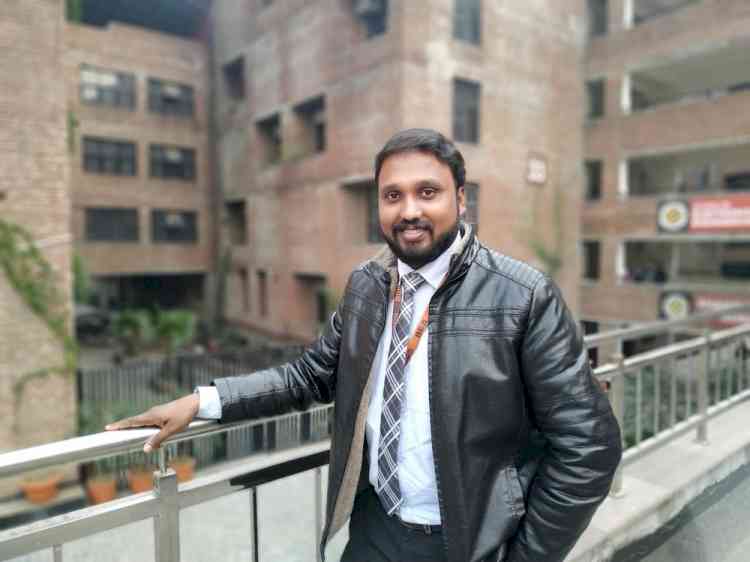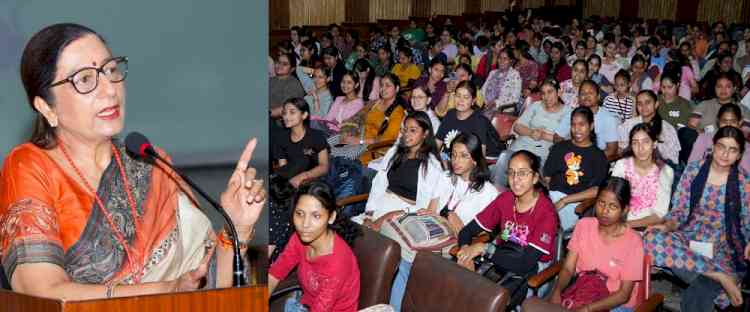LPU Scientists’ patented Innovative Methodology is to enthral Chocolate Fans
The patent granted by Government of India is titled as “a novel double fermentation process for fruit flavoured chocolate with antioxidant properties”

Jalandhar: Researchers and scientists at LPU have got their chocolate related patent granted from the Patent Office of the Government of India. This patent is titled as “a novel double fermentation process for fruit flavoured chocolate with antioxidant properties”. The invention relates to innovative method of processing cocoa beans using double fermentation to modify the cocoa bean’s flavour profile and antioxidant property. LPU scientists’ this patented Innovative methodology is certain to enthral chocolate fans-be these children, adults or old ones. Seeking to file the patent in other countries as well, the PCT (Patent Cooperation Treaty) for the same has already been filed by LPU.
Presently, it is noted that in the existing method, the chocolate manufactures use synthetic flavours to bring fruit flavour to a chocolate. This is not good for health, as it causes serious health hazards. In order to prevent such artificial flavours, LPU’s patented innovative method is to add natural flavours. It will be by processing cocoa beans, and by adding their own extracted original flavours in the chocolates. In addition, it helps on enhancing the antioxidant property present in the product. The antioxidants in cocoa have been linked to impressive health benefits, including less inflammation and reduced risk factors for heart disease. The new product will also have a potential to lower the risk of developing overweight and obesity.
In fact, Cocoa is an important commodity in the world and the main ingredient in chocolate manufacture. Its value and quality are related to unique and complex flavours. The specific cocoa aroma arises from complex biochemical and chemical reactions during the post-harvest processing of raw beans; environmental conditions; farming practices; processing; and, manufacturing stages. There has already been much research on cocoa flavour components; however, LPU scientists’ double fermentation research has brought forth relaxing results.
Congratulating LPU researchers to keep on imbibing positivism, creativity and energy that they are possessing even in the present hard times, LPU Chancellor Mr Ashok Mittal invoked all researchers to work on novel and socially useful scientific ideas. Mr Mittal shares: “In the present time most of the services required are for new knowledge beneficial to the humanity, particularly for the good health and hygiene. Presently much researched out ‘CORONA Vaccines’ are supreme example on these lines. In fact, research for the sake of research only is not a befitting solution to any existing problem.”
Global demand for cocoa and chocolate has been increasing. The popularity of cocoa products is related to their unique sensory, pleasant melt‐in‐the‐mouth properties, the health benefits of cocoa and its role as a potential functional food. Its “flavour” is one of the most significant consumer parameters. The specific cocoa and chocolate flavour profile is developed during the processing steps of beans, including fermentation, drying, and roasting. During LPU scientists’ double fermentation process antioxidants are also generated.
LPU researcher from the School of Bioengineering and Biosciences, Dr Jastin Samuel shares: “The process of double fermentation of cocoa is to modify the cocoa bean’s flavour profile and antioxidant property in the chocolates. During this cocoa beans are first fermented and the natural aroma and flavour of cocoa are obtained. It is further fermented using fruit pulp or the rind (peel) to add fruit flavour to the chocolate. It helps to add around 40% natural antioxidants to the cocoa beans. This method is cost-effective because industry does not need additional infrastructure to implement this process. Moreover, it helps in providing improved flavour and quality of the chocolates, which would certainly be easily acceptable and likeable to all the customers.” Dr Evangeline Christina and Microbiology student Radhika Lakhanpal are also important part of this research team.


 cityairnews
cityairnews 










